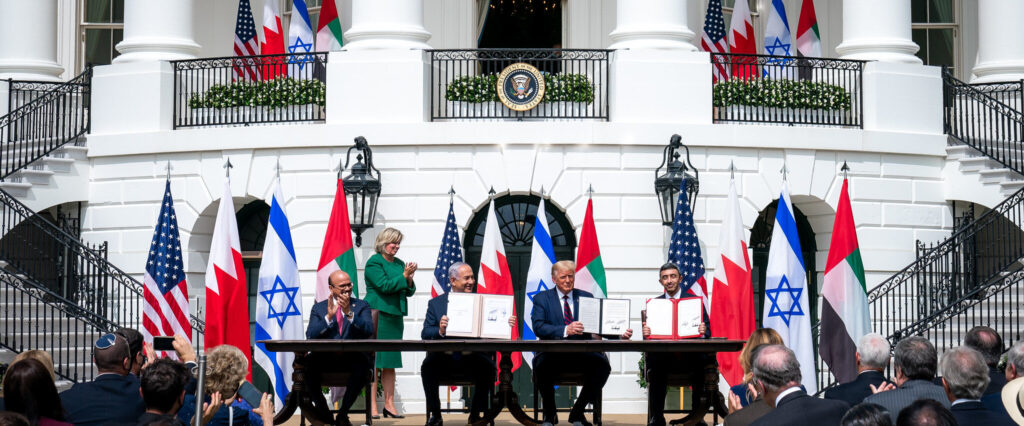Quietly pursued in the past, long-standing strategic ties between Israel and Gulf states have become public. Building on the historic Joint Agreement signed between Israel and the UAE in August, the Abraham Accords serve as a framework for normalizing diplomatic relations between Israel, the UAE and Bahrain. They define paths towards establishing embassies, building strong diplomatic and economic ties, promoting tourism, and a variety of technological exchanges. As part of this process, Israel and the Emirates commenced commercial flights between their countries for the first time. Bahrain (and Saudi Arabia) did not initiate flights; however, they opened their airspace for UAE-Israel air travel. Departing from previous elements that achieved Arab-Israeli agreements, these agreements did not include a promised Israeli withdrawal from territories Israel won in the June 1967 War or any verbal agreement to either the PLO or the Palestinian Authority. Most analyses of this agreement conclude that they emphatically show a diplomatic shift away from Palestinian issues to Israeli and Gulf State preferences to focus on preserving national interests and common regional fears for the activist hegemonic intentions of Turkey and Iran. Building and strengthening Israel’s ties with Gulf states in cyber-security, trade, artificial intelligence, intelligence sharing, and water management could be a common basis for establishing a loose regional alliance or system of states with similar interests in the decade-long wake of individual Arab-states’ internal convulsions. On October 13, the Knesset wholeheartedly endorsed the UAE-Israel-Bahrain Agreement by an 80-13 majority. (source)

